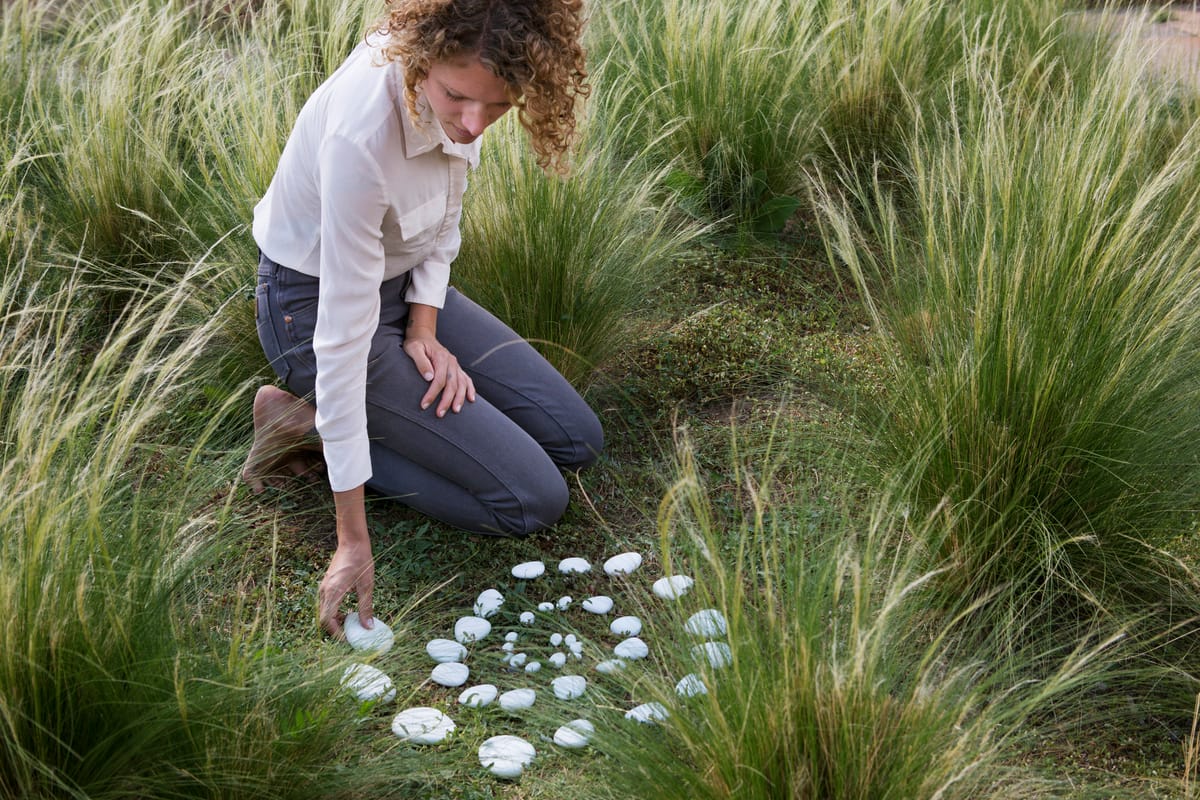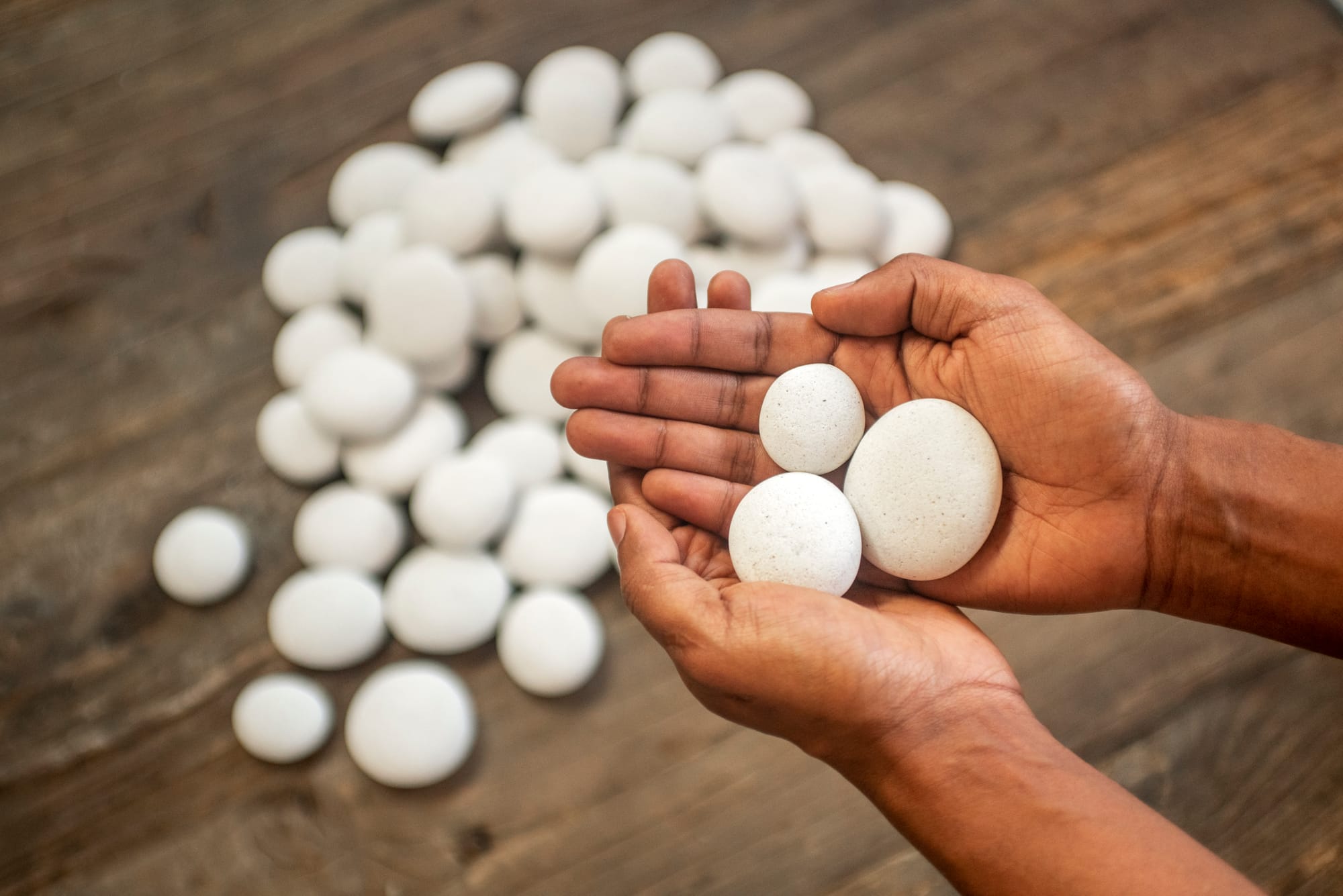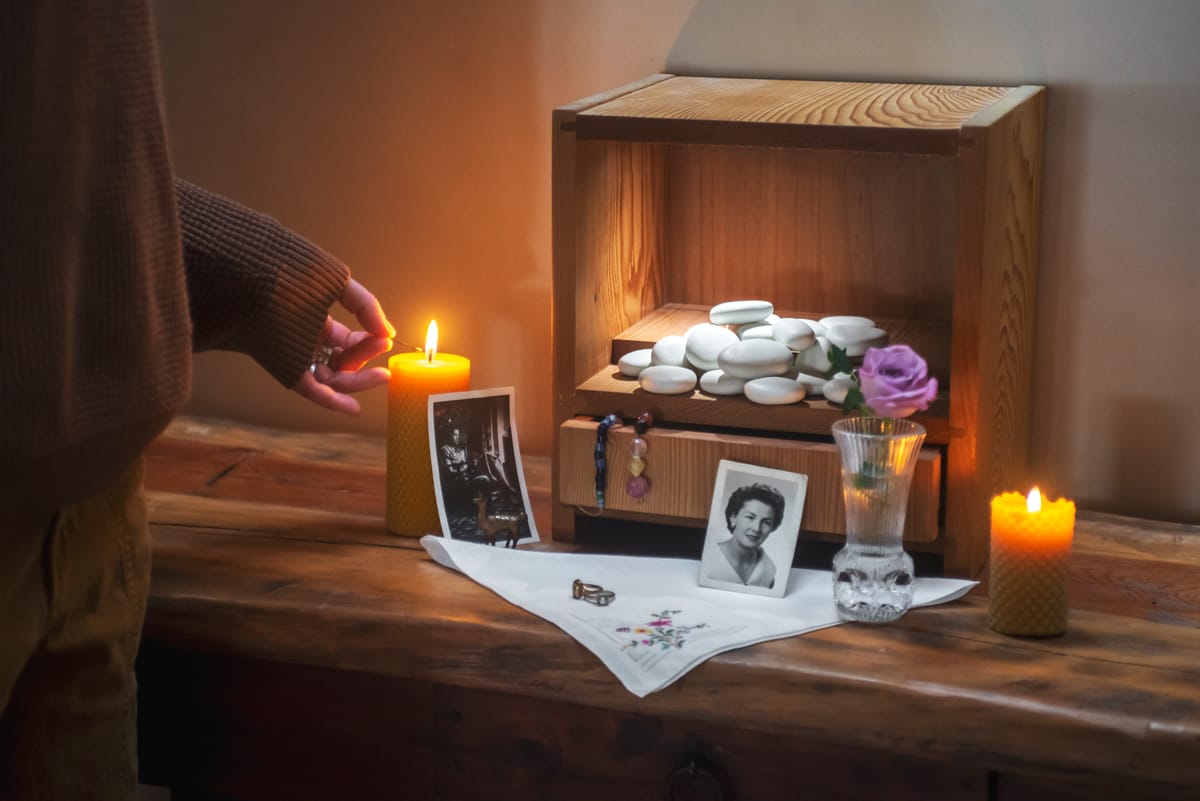Religious Memorial Options: Honoring Faith and Memory
Faith shapes how we remember. Explore Christian, Jewish, Islamic, and other religious memorial options that honor both tradition and your loved one’s memory.

When Faith and Grief Intersect: Finding Memorial Options That Honor Both
When faith and grief intersect, many families find themselves navigating uncharted waters where cherished religious traditions meet evolving memorial possibilities. The loss of a loved one often brings families face-to-face with decisions they never imagined making, especially when considering how to honor both their faith and their desire to memorialize in meaningful ways.
Many families of faith experience a natural tension between honoring time-tested religious traditions and exploring contemporary memorial options that may feel more personally meaningful. This intersection of sacred and personal can feel overwhelming during a time when emotions run deep and clarity feels elusive. Some find themselves wondering whether newer memorial approaches align with their spiritual beliefs, while others question if traditional practices fully capture their loved one's unique spirit.
Rather than serving as a religious authority, this exploration aims to guide families through the landscape of faith-compatible memorial choices. Every tradition offers wisdom about honoring the deceased, yet each family's journey through grief remains deeply personal. Understanding how different faith traditions approach memorialization can provide the foundation for making decisions that feel both spiritually grounded and personally meaningful.
Families will discover that religious memorial options span a remarkable spectrum, from ancient practices that have provided comfort for millennia to contemporary approaches that many faith communities are thoughtfully embracing. Your timeline for making these decisions is entirely your own, and there's no rush to determine what feels right for your family's unique circumstances and spiritual convictions.
Reflections on love, loss, and the ways we carry them.
When faith and grief meet, families often find themselves standing at a crossroads, one path lined with sacred tradition and the other with the pull of something more personal, more reflective of the life that was lived. I’ve spoken with many families who wrestle quietly with questions like, “Would my mother have wanted this?” or “Can we honor our faith and still do something that feels like her?”
I remember, a devoutly Catholic family asking whether their mother’s remains could be transformed into something they could each hold. Their priest gently reminded them that reverence isn’t found in the form but in the intention. That was when they discovered the beauty of solidified remains, a way to stay true to their faith while creating a tangible remembrance that could be shared among family.
Faith, after all, teaches us that love endures beyond the physical. The process of solidification, completed within 8 to 10 weeks, gives families time to reflect, to pray, and to move through their grief with both reverence and tenderness. It doesn’t replace tradition; it deepens it.
Because at the heart of every belief system, whether Christian, Jewish, or Muslim, lies the same hope: that we may remember our loved ones not with fear or doubt, but with peace, presence, and a sense that the sacred continues in new forms.
Cathy Sanchez Babao
Parting Stone Grief Coach
Faith-by-Faith Memorial Exploration
Christian Memorial Options: Tradition and Contemporary Acceptance
Christian families often find comfort in memorial practices rooted in centuries of tradition, yet many are discovering that their faith offers flexibility for contemporary memorial expressions. Traditional Christian memorialization has long emphasized the hope of resurrection, leading to practices like burial in consecrated ground, memorial services that celebrate eternal life, and the creation of lasting monuments that testify to faith.
Within Christianity's diverse denominational landscape, approaches to memorial options vary significantly. Catholic families typically work within established church teachings that emphasize the dignity of the human body and traditional burial practices, though recent Vatican guidance has opened doors for discussing cremation and alternative memorialization when approached with proper reverence. Protestant denominations often provide greater flexibility, with many evangelical and mainline churches embracing memorial practices that reflect personal faith journeys and individual expressions of remembrance.
Orthodox Christian communities generally maintain stricter adherence to traditional burial practices, yet even within these traditions, families find meaningful ways to honor loved ones through memorial gardens, perpetual prayers, and community remembrance traditions. Many contemporary Christian memorial options include memory gardens where families can visit and reflect, personalized memorial stones that incorporate meaningful scripture or faith symbols, and memorial services that blend traditional liturgy with personal celebration of life elements.
Contemporary theological discussions increasingly recognize that the heart of Christian memorial practice lies not in specific physical forms but in the intention to honor God while cherishing the memory of loved ones. Many families discover that their pastors and spiritual advisors support memorial choices that reflect both faithfulness and personal meaning, creating space for families to explore options that feel spiritually authentic while honoring their unique relationship with the deceased.
Jewish Memorial Customs and Contemporary Considerations
Jewish memorial customs rest on profound theological foundations that emphasize honoring the deceased while supporting the living through structured mourning practices. Halachic considerations traditionally favor burial over cremation, rooted in beliefs about bodily integrity and resurrection, yet contemporary Jewish communities engage in nuanced discussions about memorial practices that honor both tradition and personal circumstances.
Orthodox Jewish communities generally maintain strict adherence to traditional burial practices, including rapid burial, specific preparation rituals, and ongoing memorial observances like Kaddish and annual yahrzeit commemorations. These practices create structured pathways for grief while maintaining connection to the deceased through prescribed religious observances. Conservative Jewish communities often provide more interpretive flexibility while maintaining core memorial principles, allowing families to work with rabbinical guidance to find approaches that honor both tradition and personal needs.
Reform and Reconstructionist Jewish communities frequently embrace broader interpretations of memorial practices, recognizing that the essence of Jewish mourning—supporting the bereaved, honoring the deceased, and maintaining community connection—can be expressed through various memorial forms. Many contemporary synagogues offer memorial gardens, digital memorial platforms, and community remembrance programs that serve Jewish values while accommodating diverse family preferences.
Modern rabbinical scholarship increasingly recognizes that Jewish memorial practice centers on kavod hamet (honoring the deceased) and nichum aveilim (comforting mourners) rather than specific physical requirements. Many Jewish families find that contemporary memorial options can fulfill these core values while providing personally meaningful ways to maintain connection with loved ones. Rabbinical consultation often reveals creative approaches that respect Halachic principles while embracing memorial forms that serve modern family needs and circumstances.
The cremated remains of Garth's mother felt meaningless sitting in his clothing closet for 2 decades. Learn how solidified remains helped dissolve the relationship barrier he felt with her and integrate her memory into daily life.
Islamic Memorial Guidance: Sharia Principles and Cultural Adaptations
Islamic memorial practices are guided by Quranic teachings and prophetic traditions that emphasize the temporary nature of earthly life while honoring the dignity of the deceased. Traditional Islamic burial practices include rapid burial, specific ritual preparations, and ongoing remembrance through prayers and charitable acts performed in the deceased's memory. These practices reflect deep theological principles about death, resurrection, and the continuing spiritual relationship between the living and departed.
Hadith literature and Islamic jurisprudence provide detailed guidance about proper treatment of the deceased, generally favoring burial while emphasizing the importance of intention and spiritual respect over specific physical forms. Different schools of Islamic thought offer varying interpretations of memorial practices, with some providing more flexibility for contemporary approaches when undertaken with proper spiritual intention and community consultation.
Cultural variations across the global Muslim community reveal how Islamic principles adapt to diverse local contexts while maintaining core spiritual values. Muslims in different regions have developed memorial practices that honor Islamic teachings while reflecting local customs and family traditions. Many contemporary Islamic scholars recognize that the heart of Islamic memorial practice lies in maintaining taqwa (God-consciousness) and serving the spiritual welfare of both the deceased and bereaved community.
Contemporary Islamic scholarship increasingly explores how modern memorial options can align with Sharia principles when approached with proper intention and community guidance. Many Muslim families work closely with their imams and Islamic scholars to identify memorial approaches that honor both religious requirements and personal family needs, creating space for memorial practices that feel both spiritually authentic and personally meaningful while maintaining adherence to fundamental Islamic values.
Hindu, Buddhist, and Other Faith Perspectives on Memorial Forms
Hindu traditions offer rich theological frameworks for understanding death and memorialization that often embrace transformation and continuing spiritual connection. Traditional Hindu practices include cremation as a means of releasing the soul for its continuing journey, followed by memorial observances that maintain spiritual connection through prayers, offerings, and annual remembrance ceremonies. These practices reflect deep beliefs about the soul's eternal nature and the importance of supporting its spiritual progression.
Buddhist memorial practices emphasize impermanence and compassion while creating opportunities for spiritual merit-making that benefits both the deceased and living community. Traditional Buddhist approaches include meditation practices, merit dedication ceremonies, and memorial observances that focus on spiritual development rather than attachment to physical forms. Many Buddhist communities embrace memorial practices that cultivate wisdom and compassion while honoring the memory of loved ones.
Sikh traditions combine elements from various spiritual streams while emphasizing service, community, and spiritual equality. Memorial practices often include community prayers, charitable activities performed in the deceased's honor, and ongoing spiritual observances that maintain connection while serving broader community welfare. These approaches reflect Sikh values of selfless service and spiritual devotion while providing meaningful memorial expressions.
Indigenous spiritual traditions, Baháʼí faith communities, and other diverse religious groups each offer unique perspectives on memorial practices that honor their specific theological understandings and cultural values. Many of these traditions emphasize connection with nature, community support, and spiritual continuation while providing flexible frameworks for contemporary memorial expressions. Families from these backgrounds often work with spiritual leaders and community elders to identify memorial approaches that honor both traditional values and personal family circumstances.
Contemporary interfaith dialogue reveals common themes across diverse religious traditions: honoring the deceased with dignity, supporting bereaved communities, maintaining spiritual connection, and expressing love through meaningful remembrance. These universal elements provide foundation for families to explore memorial options that align with their specific faith tradition while serving their unique grief journey and family dynamics.

A New Way to Hold Close What Matters Most
We transform cremated remains into beautiful, touchable stones that bring comfort when you need it. Something you can hold, share, and keep close.
Cross-Faith Memorial Considerations
Understanding universal spiritual themes in memorialization helps families navigate the intersection of faith and personal meaning. Across diverse religious traditions, certain core values consistently emerge: treating the deceased with dignity, supporting those who mourn, maintaining connection across the boundary of death, and expressing love through meaningful remembrance. These shared values provide common ground where families can explore memorial options that honor both religious principles and personal needs.
Many families discover that the essence of religious memorial practice lies not in specific physical forms but in the spiritual intention and community context that surround memorial choices. Whether through traditional burial, cremation, or alternative memorial forms, the heart of faithful memorialization involves creating opportunities for healing, remembrance, and ongoing spiritual connection. This recognition often opens creative possibilities for families seeking memorial approaches that feel both religiously authentic and personally meaningful.
Interfaith family navigation requires particular sensitivity and wisdom, as family members may bring different religious backgrounds and memorial expectations to grief situations. Many interfaith families work with spiritual advisors from multiple traditions to identify memorial approaches that honor diverse faith perspectives while creating unity around shared love for the deceased. These conversations often reveal that different religious traditions share more common values than initial differences might suggest.
Distinguishing between cultural practices and religious requirements helps families understand which memorial elements reflect essential faith principles versus cultural customs that may offer more flexibility. Many memorial traditions blend religious requirements with cultural expressions, creating opportunities for families to honor core spiritual values while adapting cultural elements to reflect personal circumstances and contemporary options.
| Faith Tradition | Traditional Memorial | Modern Alternatives | Key Considerations |
|---|---|---|---|
| Christianity | Burial, headstones | Memorial gardens, cremation | Denominational flexibility varies |
| Judaism | Rapid burial, yahrzeit | Memorial forests, digital memorials | Rabbinical consultation recommended |
| Islam | Burial, ongoing prayers | Memorial gardens | Imam guidance essential |
| Hinduism | Cremation, shraddha | Memorial temples | Spiritual progression focus |
| Buddhism | Cremation, merit-making | Memorial meditation gardens | Impermanence teachings central |

Decision Framework for Religious Families
Spiritual discernment about memorial options often begins with honest reflection about what your faith tradition emphasizes as most important in honoring the deceased. Many families find it helpful to consider questions like: What would my loved one have wanted? How can our memorial choice reflect our deepest spiritual values? What approaches would help our family heal while maintaining our religious identity? These questions often reveal that faithful memorial practices can take various forms while honoring core spiritual principles.
Consultation with trusted religious advisors provides invaluable guidance for families exploring faith-compatible memorial options. Pastors, rabbis, imams, and other spiritual leaders often have experience helping families navigate memorial decisions while maintaining religious integrity. Among the emerging options that many families explore, services like Parting Stone offer solidification processes that work within religious timeframes and family sharing traditions, demonstrating how contemporary memorial approaches can align with various faith perspectives when approached thoughtfully.
Timeline considerations for faith-based memorial decisions recognize that grief and spiritual discernment both require patience and wisdom. Many religious traditions emphasize that memorial decisions should not be rushed, allowing families time to process their loss while seeking spiritual guidance about appropriate memorial approaches. Your spiritual and emotional readiness matters more than external pressures or timelines, and faithful memorial decisions often emerge through prayer, reflection, and community consultation rather than immediate decision-making.
Cremated remains can feel messy and meaningless. Instead of receiving a box of ashes following cremation, you can now receive a collection of stones. Solidified remains let you feel connection with the remains of your departed. Turn your ashes into stones at https://partingstone.com
Frequently Asked Questions
Are memorial stones acceptable in different religions?
Most major faith traditions can accommodate memorial stones when approached with proper spiritual intention and guidance from the community. Christianity generally embraces memorial stones with religious symbols, Judaism traditionally favors them for grave markers and memorial purposes, while Islam permits memorial stones that avoid elaborate decoration. Hindu and Buddhist traditions often incorporate memorial stones into spiritual practices. The key lies in ensuring any memorial approach aligns with your specific faith community's guidance and your family's spiritual convictions.
How do I know if a memorial option aligns with my faith?
Determining faith alignment involves consulting with your religious leaders, studying your tradition's teachings about death and memorialization, and reflecting on your core spiritual values. Most faith traditions emphasize intention, dignity, and community support over specific physical forms. Consider whether a memorial option honors your religious principles, serves your family's healing process, and feels spiritually authentic. When in doubt, seek guidance from trusted spiritual advisors who understand both your faith tradition and your personal circumstances.
Can interfaith families find memorial options that honor all traditions?
Interfaith families often discover memorial approaches that respect multiple religious perspectives by focusing on shared values like dignity, love, and remembrance. Many families work with spiritual advisors from different traditions to identify common ground and creative solutions. Memorial options that emphasize family gathering, ongoing remembrance, and spiritual reflection often transcend specific religious requirements while honoring diverse faith backgrounds. The key lies in open communication about different religious needs and collaborative exploration of memorial approaches that serve everyone's spiritual welfare.
You're Not Alone in This Journey
Many families find that traditional ashes create more anxiety than comfort—whether it's difficulty with storage, challenges sharing among family members, or simply feeling uncomfortable with the form they're in. Over 10,000 families have found peace through Parting Stone's solidification process, which transforms ashes into smooth, natural stones that feel comforting to hold and easy to share.
When you're ready to explore options:
There's no timeline for grief, and there's no rush to make decisions. We're here to support you whenever you feel ready to take the next step.






